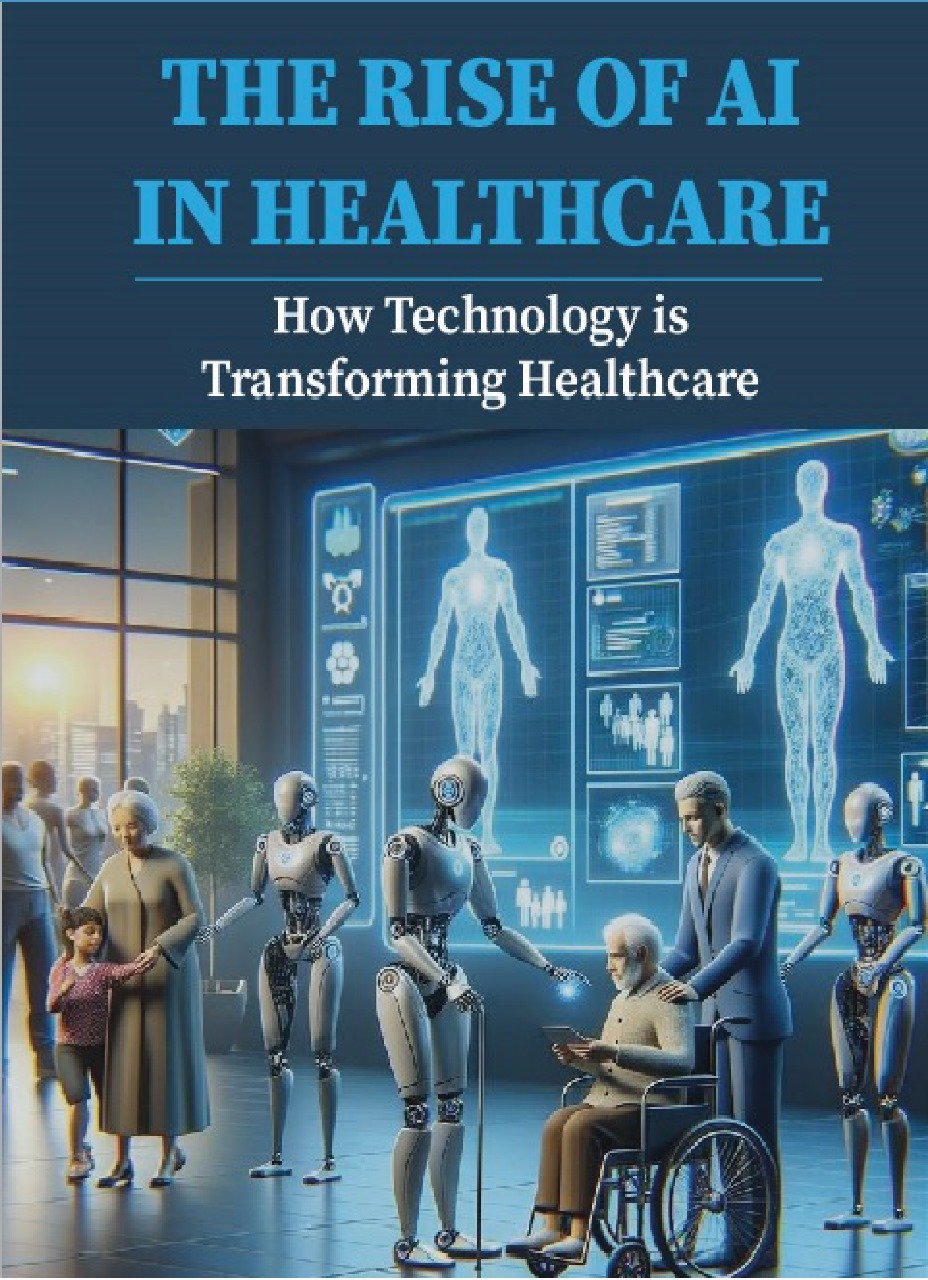
The Rise of AI in Health Care: How Technology is Transforming Health Care
Authors: Hasan Mahmud Sozib, Mesbah Uddin, Intiser Islam, Maniruzzaman Bhuiyan, Md. Firoz Hossain, Shariar Islam Saimon, Sharmin Akter, Md Sajedul Karim Chy
First Published: 28-04-2024
DOI: https://doi.org/10.63471/books/12
Category: Finance and Accounting
Copyright: © C5K Research Publication
E-Book
$9.99
Printed Book
$49.99
Pre-Order
- E-Book $5.99
- Printed Book $29.99
(PRE-ORDER)
Read a sample chapter


First Publish: 28-04-2024
Print ISBN: 978-1-967642-15-1
DOI: https://doi.org/10.63471/books/12
Dimensions: 22.9cm x 15.2cm x 2.5cm
Item Weight: 250 gm
The healthcare industry is one of the most revolutionary sectors to experience the new age of opportunities
brought about by the rapid breakthroughs in artificial intelligence (AI). From administrative automation
and robotic-assisted surgery to personalized medicine and predictive analytics, artificial intelligence (AI)
is not just a supporting tool but is transforming healthcare delivery, management, and patient experiences.
Because of its complexity and variety, the healthcare industry is in a unique position to gain from artificial
intelligence technology. Healthcare offers a rich environment for AI applications because of its enormous
volumes of data, which include genetic sequences, electronic health records (EHRs), medical imaging, and
real-time patient monitoring. These technologies can uncover patterns, produce insights, and help make
decisions that were previously impossible or time-consuming. AI can examine enormous information with
previously unheard-of speed and accuracy using machine learning algorithms and advanced analytics,
revealing hidden relationships and empowering healthcare professionals to make better decisions. The
promise of AI in healthcare to address access and quality disparities is among its most remarkable features.
AI-powered diagnostic technologies can enable healthcare professionals to more correctly and sooner detect
illnesses in areas with limited healthcare resources. AI driven telemedicine platforms and diagnostic
algorithms that can evaluate medical data without the urgent requirement for specialists might be extremely
beneficial for remote places, which are frequently neglected by medical personnel. Predictive models may
also aid in more effective resource allocation, which lowers waste and enhances results. AI portends a future
in which patients will receive proactive, individualized care that is based on their own genetic, lifestyle,
and environmental characteristics. Preventive treatments and improved long-term health management are
made possible by the application of AI in predictive analytics, which provides the capacity to anticipate
possible health problems before they materialize. AI has great potential for improving healthcare delivery
as well as for medication development and medical research. Conventional approaches to creating novel
therapies are sometimes costly and time-consuming. By finding possible drug candidates, mimicking
biological interactions, and even repurposing already-approved medications for novel therapeutic
applications, AI speeds up this process. These developments eventually benefit patients all across the world
by lowering prices and accelerating the release of life-saving therapies.